#ERP Software Market Growth
Explore tagged Tumblr posts
Text
ERP Software Market Size and Share, Revenue, Upcoming Trends, Growth Drivers, Challenges, Opportunities and Forecast Till 2033: SPER Market Research
Enterprise Resource Planning (ERP) software is a collection of integrated programmes that help manage fundamental business activities such as finance, human resources, supply chain, manufacturing, customer relationship management (CRM), and more. It offers a unified platform for data storage, analysis, and collaboration, allowing companies to streamline operations and make data-driven decisions. ERP software removes the need for many systems and manual processes, resulting in higher productivity and cost savings.
According to SPER market research, ‘ERP Software Market Size- By Function, By Size, By Deployment, By End User- Regional Outlook, Competitive Strategies and Segment Forecast to 2033’state that the Global ERP Software Market is predicted to reach USD 176.56 billion by 2033 with a CAGR of 11.43%.
The growing need for operational efficiency and transparency in company operations, the rise in demand for data-driven choices, and the use of mobile and cloud applications are all driving the ERP software market forward. However, the increasing availability of open-source applications, as well as higher initial investment and maintenance expenses, are expected to slow market development. A growth in demand for cloud-based ERP solutions, particularly from small and medium-sized organisations, is expected to open up new opportunities for market players.
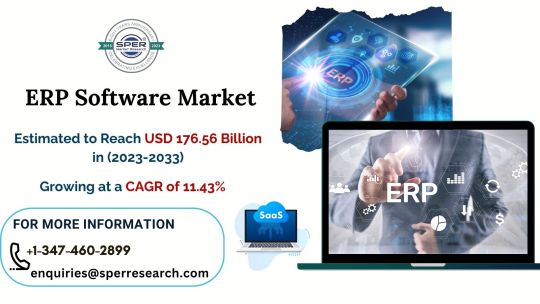
Request For Free Sample Report @ https://www.sperresearch.com/report-store/erp-software-market.aspx?sample=1
The low infrastructure costs and software's ability to interface with mobile devices are expected to grow the market for cloud services. Mobile is an essential component of the workplace culture, and businesses are willing to spend money on cloud-connected mobile applications. It allows individual users to synchronise, update, and control documents. The popularity of cloud and mobile apps is increasing, which is helping the ERP industry grow.
Furthermore, when business applications increase and data is generated across various supply chains, firms can implement a centralised platform that manages all processes. As a result of increasing automation and technological deployments in the supply chain management process, demand for ERP systems has surged, leading to market growth.
CHALLENGES/RESTRAINTS:
High implementation and maintenance costs: Implementing an ERP system may be a considerable financial expenditure for organisations, particularly small and medium-sized firms. Additionally, continuing maintenance and upgrade expenditures might raise the total cost of ownership, making it difficult for some organisations.
ERP implementations frequently include complicated processes that require customisation to meet the specific needs of an organisation. Managing the customisation process can be difficult and may result in delays and increased expenditures.
COVID Impact: The COVID-19 pandemic resulted in widespread lockdowns and the closure of non-essential firms, lowering demand for cloud-based ERPs as corporations focused on cost-cutting and profitability. Furthermore, firms prioritised developing their core skills and cutting costs by eliminating some offices. However, as many nations' lockdown measures are gradually lifted and governments enable enterprises to operate under safety standards, demand for cloud ERPs is projected to rise in the coming months. Furthermore, continued technological breakthroughs and innovations are expected to fuel long-term demand for cloud ERP systems.
North America dominated the ERP software market. This dominance is due to growing use by small and medium-sized businesses, greater investments by ERP suppliers in new technology, and the presence of a large number of market participants. The Asia-Pacific area is primed for growth as a result of a robust manufacturing sector, expanding SMEs, and rising demand for cloud-based solutions, which is being driven by government IT infrastructure investments.
Additionally, some of the market key players are Acumatica, Oracle Corporation, Plex System, QAD Inc., Ramco System, Sage Group, plc, SAP SE, SYSPRO, TOTVS S.A., Workday, Inc., Others.
Global Enterprise Resource Planning Software Market Segmentation:
By Function: Based on the Function, Global ERP Software Market is segmented as; Customer Management, Finance, Human Resource, Inventory Management, Supply Chain Management, Others.
By Size: Based on the Size, Global ERP Software Market is segmented as; Large Enterprises, Medium Enterprises, Small Enterprises.
By Deployment: Based on the Deployment, Global ERP Software Market is segmented as; Cloud, Hybrid, On-Premises.
By End User: Based on the End User, Global ERP Software Market is segmented as; Aero-Space & Defense, Banking, Financial Services, and Insurance (BFSI), Construction, Government & Utilities, Healthcare & Life Sciences, IT & Telecom, Manufacturing, Transportation & Logistics, Others.
By Region: This report also provides the data for key regional segments of Asia Pacific, Europe, Middle East and Africa, North America, Latin America.
This study also encompasses various drivers and restraining factors of this market for the forecast period. Various growth opportunities are also discussed in the report.
For More Information, refer to below link:-
ERP Software Market Size
Related Reports:
Life Science Software Market Size- By Type, By Application, By Component, By Solutions - Regional Outlook, Competitive Strategies and Segment Forecast to 2033
Global 5G IoT Market Size- By Component, By Enterprise Size, By Network Type, By End User- Regional Outlook, Competitive Strategies and Segment Forecast to 2033
Follow Us –
LinkedIn | Instagram | Facebook | Twitter
Contact Us:
Sara Lopes, Business Consultant – U.S.A.
SPER Market Research
+1-347-460-2899
#Enterprise Resource Planning (ERP) Software Market#Enterprise Resource Planning Software Market#ERP Software Market#ERP Software Market Analysis#ERP Software Market Challenges#ERP Software Market Competition#ERP Software Market Demand#ERP Software Market Forecast#ERP Software Market Future outlook#ERP Software Market Growth#ERP Software Market Opportunity#ERP Software Market Overview#ERP Software Market Research Report#ERP Software Market Revenue#ERP Software Market segmentation#ERP Software Market Share#ERP Software Market Size#ERP Software Market Top Industry Players#ERP Software Market Trends#USA ERP Software Market#Canada ERP Software Market#Europe ERP Software Market#Global ERP Software Market
0 notes
Text
Enterprise Application Market Analysis: Trends and Opportunities

Enterprise Application Market Analysis: Trends and Opportunities
Straits Research Releases In-Depth Report on the Enterprise Application Market
Pune, India – December 13, 2024 – Straits Research, a leading market intelligence firm, has unveiled its comprehensive report on the global Enterprise Application Market, revealing substantial growth and opportunities. According to the report, the global Enterprise Application Market size was valued at USD 308.08 billion in 2024 and is projected to grow from USD 335.96 billion in 2025 to USD 662.78 billion by 2033, reflecting a compound annual growth rate (CAGR) of 9.05% during the forecast period (2025–2033).
Request a Free Sample (Full Report Starting from USD 1850): https://straitsresearch.com/report/enterprise-application-market/request-sample
Enterprise Application Market Catalysts for Expansion
The expansion of the Enterprise Application Market is driven by several key catalysts:
Digital Transformation Initiatives: Organizations worldwide are increasingly adopting digital transformation strategies to enhance efficiency and competitiveness. Enterprise applications play a crucial role in this transformation, providing tools for better resource management, customer relationship management, and business intelligence.
Cloud Adoption: The shift towards cloud-based solutions is a significant driver, offering flexibility, scalability, and cost-efficiency. Cloud deployment models enable businesses to access advanced applications without the need for substantial upfront investments in IT infrastructure.
Increased Focus on Customer Experience: Enhancing customer experience is a top priority for many organizations. Enterprise applications such as CRM systems help businesses understand and engage with their customers more effectively, leading to improved satisfaction and loyalty.
Regulatory Compliance: Strict regulatory requirements across various industries necessitate the adoption of enterprise applications to ensure compliance and mitigate risks. Solutions such as ERP and SCM systems help organizations manage their operations in accordance with regulatory standards.
Enterprise Application Market Segment Breakdown
The Enterprise Application Market is segmented by product, deployment, and end-user, each contributing to the market's overall growth dynamics.
For more details: https://straitsresearch.com/report/enterprise-application-market/segmentation
By Product
CRM (Customer Relationship Management): Solutions that help businesses manage interactions with current and potential customers.
ERP (Enterprise Resource Planning): Integrated management of core business processes, often in real-time, mediated by software and technology.
SCM (Supply Chain Management): Systems that manage the flow of goods, data, and finances related to a product or service.
Web Conferencing: Tools that facilitate virtual meetings and webinars.
BI (Business Intelligence): Technologies and strategies used by enterprises for data analysis and business information.
BPM (Business Process Management): Solutions that enable businesses to design, analyze, execute, monitor, and optimize important processes.
CMS (Content Management System): Software applications used to manage digital content.
EAM (Enterprise Asset Management): The management of the lifecycle of physical assets to maximize their value.
Others: Includes various other enterprise applications tailored to specific business needs.
By Deployment
On-premise: Solutions deployed on local servers within an organization's premises, offering control and customization.
Cloud: Solutions hosted on remote servers, providing flexibility, scalability, and reduced maintenance costs.
By End-User
Manufacturing: Enterprise applications used to streamline production processes, manage inventory, and enhance supply chain efficiency.
BFSI (Banking, Financial Services, and Insurance): Solutions that help manage customer relationships, regulatory compliance, and financial transactions.
Healthcare: Applications that support patient management, medical records, and operational efficiency.
Retail: Tools that enhance customer engagement, inventory management, and sales analytics.
Government: Systems that improve public administration, service delivery, and regulatory compliance.
Aerospace & Defense: Applications used to manage complex projects, ensure regulatory compliance, and optimize operational efficiency.
Telecom & IT: Solutions that support customer service, network management, and business operations.Detailed Table of Content of the Enterprise Application Market Report: https://straitsresearch.com/report/enterprise-application-market/toc
Top Performing Companies
Leading companies in the Enterprise Application Market include:
SAP
Oracle
Microsoft
Salesforce
IBM
Infor
ServiceNow
Workday
Sage
Zoho
These companies are at the forefront of innovation, continuously enhancing their product offerings to meet the evolving needs of businesses.
Enterprise Application Market Emerging Prospects
The Enterprise Application Market is poised for continued growth, driven by emerging prospects such as:
Integration of AI and ML: The incorporation of artificial intelligence (AI) and machine learning (ML) into enterprise applications is set to revolutionize business processes, providing predictive analytics, automation, and improved decision-making.
Expansion in Emerging Markets: Rapid economic growth and digital adoption in emerging markets present significant opportunities for enterprise application providers.
Enhanced Security Features: With increasing concerns about data security, enterprise applications are evolving to include advanced security features to protect sensitive information.
Enterprise Application Market Industry Movements
The industry is witnessing several movements, including mergers and acquisitions, strategic partnerships, and technological advancements. These movements are reshaping the competitive landscape and driving innovation in the market.
Enterprise Application Market Geographic Analysis
The market demonstrates varied trends across different regions:
North America: The largest market for enterprise applications, driven by technological advancements and high adoption rates of digital solutions.
Europe: Strong growth due to the presence of major enterprises and stringent regulatory requirements.
Asia-Pacific: Rapidly growing market fueled by digital transformation initiatives and the expansion of small and medium enterprises.
LAMEA (Latin America, Middle East, and Africa): Emerging market with significant growth potential due to increasing digitalization and economic development.
Enterprise Application Market Data Insights
The report provides detailed data insights, including market size, growth rates, and segment analysis. These insights enable businesses to understand market trends, identify growth opportunities, and make informed strategic decisions.
Purchase the Report: https://straitsresearch.com/buy-now/enterprise-application-market
Why Straits Research?
Straits Research is dedicated to providing accurate and in-depth market analysis, helping businesses navigate the complexities of the Enterprise Application Market. Our reports offer valuable insights, enabling organizations to achieve sustainable growth and success.
Contact Us:
Email: [email protected]
Address: 825 3rd Avenue, New York, NY, USA, 10022
Phone: +1 646 905 0080 (US), +91 8087085354 (India), +44 203 695 0070 (UK)
#Enterprise Application Market#2024 Market Report#Enterprise Software Trends#Business Applications#Market Growth#CRM#ERP#SCM#Straits Research
0 notes
Text

Boost your business with Magtec ERP! 🚀 Watch your profits soar while we handle the complexities. Schedule a demo today and experience the difference. 💪
#magtec#erp#businesssolutions#increasedprofits#success#growth#efficiency#productivity#automation#scalability#costreduction#timemanagement#finance#accounting#inventory#sales#marketing#customermanagement#hr#payroll#supplychain#cloud#software#technology#innovation#digitaltransformation#dubai#uae#india#magtecsolutions
0 notes
Text
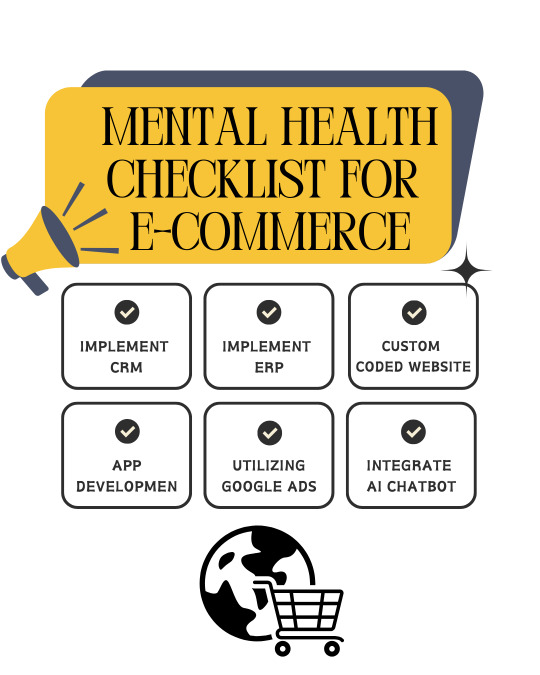
Feeling overwhelmed with managing your online store? Integrate AI-powered chatbots and software like ERP and CRM to lighten your load! Enjoy more time, less stress, and a happier, healthier you. 🌟💼
#technology#business tools#crm#crm software#ecommerce trends#business growth#tech#artificial intelligence#chatbot#web development#web design#seo services#digital marketing#erp software#cloud erp#techsolutions#techtrends#digitaltransformation#erp solution#services
1 note
·
View note
Text
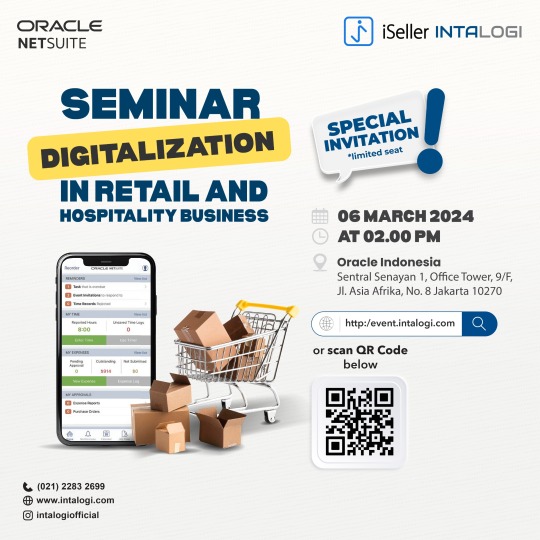
Seminar Oracle Netsuite Digitalization In Retail and Hospitality Business
#seminar#oracle#netsuite#erp systems#hashmicro#retail#business#business growth#finance#marketing#entrepreneur#management#software#information technology#development#developer
1 note
·
View note
Text
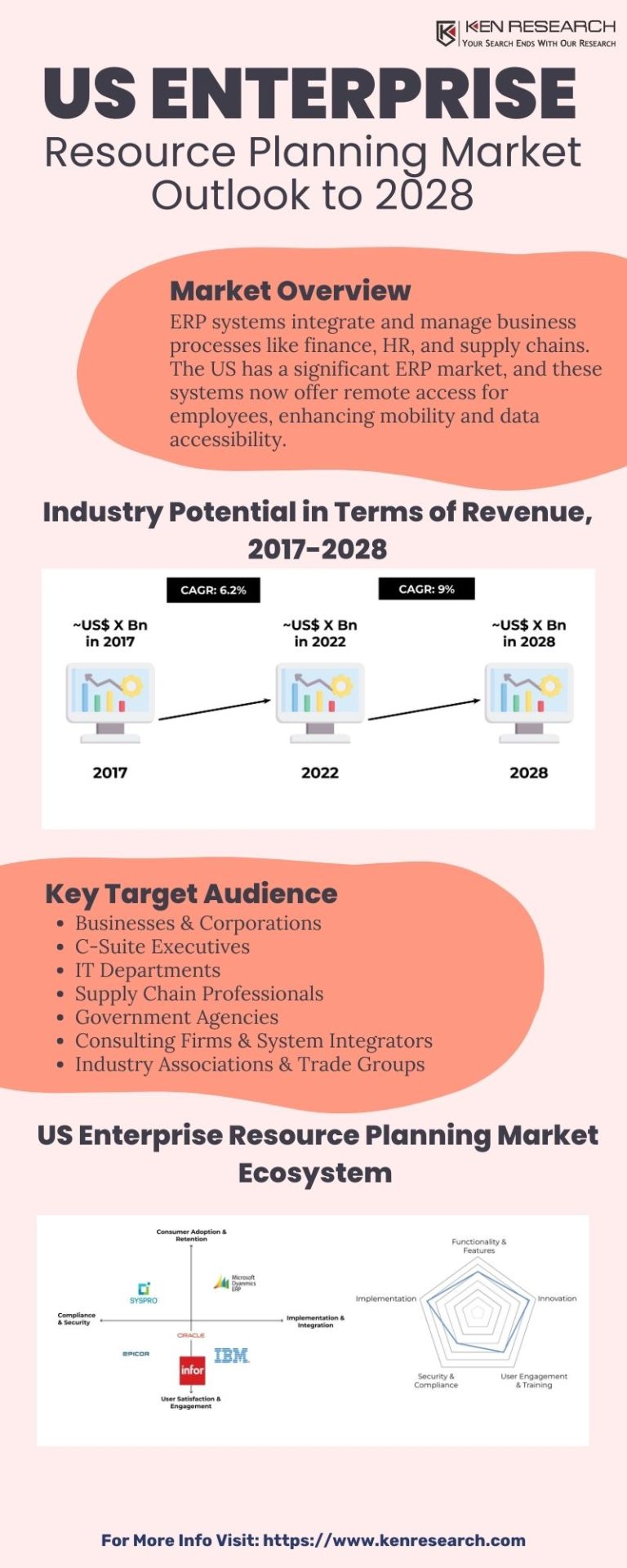
Predicting the Outlook of the Enterprise Resource Planning (ERP) Market in the United States up to 2028.
The latest ERP software trends showcase increased automation, AI integration, cloud-based solutions, enhanced data analytics, and mobile accessibility. Businesses are prioritizing scalability and user-friendly interfaces to streamline operations and stay competitive.
#ERP Software Trends#US ERP Market Growth#ERP Implementation Strategies#ERP Solutions in the United States#ERP Market Forecast 2028#Cloud ERP Adoption in the US
0 notes
Text
At KSoft Technologies, we make your business shine online with a comprehensive suite of services designed to elevate your digital presence. Our expertise spans custom web development, mobile app solutions, and tailored ERP systems, ensuring your business has the tools it needs to thrive. Whether it's creating a stunning website, custom WordPress development, or PHP solutions, we ensure everything fits your unique needs. But we don’t stop there. Our Digital marketing consultation services, including SEO strategies andGoogle Ads management, help drive targeted traffic and maximize ROI, positioning your brand for growth. Additionally, our DevOps services and Business process optimization streamline operations, while our Manual testing and UAT ensure your software performs flawlessly. From building an Ecommerce website to delivering Motion graphics and Content creation, we provide End-to-end solutions that empower your business to Stand out and succeed in the digital world. #ksofttechnologies #businessgrowth #digitalconsulting #ecommercedevelopment #customwordpressdevelopment #erpdevelopment #businessstrategy #customerp #erpsolutions #fullstackwebdeveloper
#adobe#entrepreneur#web design#ecommerce#branding#seo services#web development#artificial intelligence
3 notes
·
View notes
Text
youtube
Revolutionize Your Automotive Aftermarket Business with Epicor
Welcome to the world of Epicor, where cutting-edge solutions drive the automotive aftermarket industry forward. Epicor software, data analytics, product content, e-commerce, and service solutions can help you achieve faster, more profitable growth in one of the world’s most dynamic industries.
Whether you make, sell, or install parts, tires, and other products for automotive and commercial vehicle applications, Epicor offers best-of-breed solutions to accelerate revenue growth, eliminate inefficiencies, and strengthen customer loyalty.
Epicor specializes in: -
Parts Manufacturing
Parts Distribution
Vehicle Service and Repair
Automotive Dealership
Leverage the aftermarket’s premier data network, delivering market, vehicle, part, tire, and repair intelligence that fosters growth at every level of the aftermarket.
Master the industry’s unique compliance, supply chain, and process requirements with solutions designed to help you thrive.
Think big and grow faster with solutions curated specifically for automotive and commercial vehicle businesses.
At Analogyx, we take pride in being an Epicor Authorized Partner. We have a dedicated and specialized Epicor Support staff focused on Epicor services. We are committed to your success and strive to be your trusted partner in optimizing your Epicor ERP system to achieve your business goals.
Contact us today to explore how our Epicor services can transform your business operations and drive growth. --- Visit our website: https://analogyx.com/
Check our Blog: https://analogyx.com/revolutionizing-automotive-management-with-erp/
3 notes
·
View notes
Text
How Manufacturers Can Manage Growth with ERP
Introduction:
In the dynamic landscape of manufacturing, where growth is the ultimate goal, the ability to adapt and streamline operations is paramount. Enter ERP (Enterprise Resource Planning), a powerful solution that has revolutionized the way manufacturers operate. In this blog, we'll explore the significant role of ERP software for manufacturing industry and how it serves as a catalyst for sustainable growth. Whether you're in traditional manufacturing or a software development company, ERP solutions are key to optimizing processes and managing growth effectively.
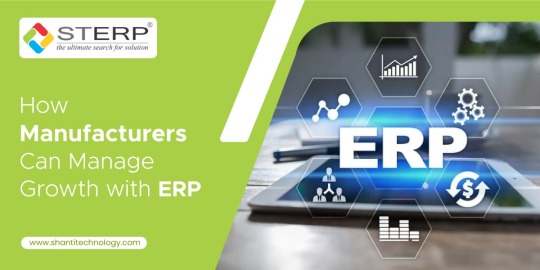
Understanding the Essence of ERP Software for Manufacturing:
1. Efficiency Unleashed:
ERP system for manufacturing industry is designed to enhance operational efficiency by integrating various business processes. From order management and procurement to production planning and inventory control, ERP systems bring together disparate functions into a unified platform, eliminating silos and enhancing overall efficiency.
2. Real-time Insights:
One of the key advantages of ERP solutions is the ability to provide real-time insights into business operations. Manufacturers can make informed decisions based on up-to-date information, helping them respond swiftly to market changes, manage resources effectively, and capitalize on growth opportunities.
3. Scalability Matters:
As a manufacturer, scalability is a constant consideration. Whether you're a growing traditional manufacturing unit or a software development company expanding its operations, ERP systems offer scalability to accommodate changing needs. The modular nature of ERP solutions allows businesses to add or modify functionalities as they evolve.
4. Improved Collaboration:
Collaboration is the bedrock of successful manufacturing. ERP fosters better communication and collaboration by providing a centralized platform where employees across different departments can access and share information seamlessly. This not only enhances teamwork but also accelerates decision-making processes.
ERP Software for Manufacturing Industry: Tailoring Solutions for Success
1. Production Planning and Scheduling:
In the manufacturing realm, effective production planning and scheduling are crucial for meeting customer demands and maintaining optimal inventory levels. ERP systems facilitate streamlined production processes, enabling manufacturers to create realistic production schedules, allocate resources efficiently, and minimize downtime.
2. Supply Chain Management:
A well-integrated supply chain is essential for manufacturers. ERP solution for the manufacturing industry ensures smooth coordination between suppliers, manufacturers, and distributors. This results in better inventory management, reduced lead times, and ultimately, improved customer satisfaction.
3. Quality Control:
Maintaining consistent product quality is non-negotiable in manufacturing. ERP solutions provide tools for comprehensive quality control by enabling real-time monitoring of production processes, tracking defects, and ensuring adherence to quality standards. This not only boosts customer confidence but also reduces wastage and rework costs.
4. Financial Management:
The financial aspect is the backbone of any business. ERP systems for manufacturing offer robust financial management capabilities, including invoicing, expense tracking, and financial reporting. This level of financial control is invaluable for manufacturers looking to manage growth effectively and make strategic financial decisions.
ERP for Software Development Company: Tailoring Solutions to Tech
1. Project Management:
For software development companies, managing projects efficiently is critical. ERP solutions designed for the software development industry offer project management modules that help track project timelines, allocate resources effectively, and ensure that development projects stay on course.
2. Resource Planning:
In the software development realm, talent is a primary resource. ERP systems tailored for software companies facilitate resource planning by providing insights into employee availability, skills, and project commitments. This ensures optimal resource allocation for project success.
3. Version Control and Collaboration:
Version control and collaboration are key aspects of software development. ERP solutions for software companies include features that enable version control, code collaboration, and documentation management. This ensures that development teams work cohesively, leading to efficient project outcomes.
4. Compliance and Security:
In the software development industry, compliance and security are paramount. ERP systems for software companies often include modules that help manage compliance with industry standards and ensure data security. This is especially crucial in an era where data protection is a top priority.
Conclusion:
As manufacturers navigate the complexities of growth, ERP software emerges as an indispensable tool for success. Whether you're in traditional manufacturing or a software development company, the benefits of ERP systems are far-reaching. From enhancing operational efficiency and providing real-time insights to tailoring solutions for specific industry needs, ERP is the key to managing growth effectively. Embrace the power of ERP, and propel your manufacturing operations into a future of streamlined processes, informed decision-making, and sustained success.
#Go-To-Market#GTM#Supply-Chain-Management#Technology#India#ERP-India#ERP#Business-Solutions#Manufacturer#Engineering#Inventory-Management#ERP Software for Manufacturing Industry#ERP System for Manufacturing Industry#ERP for Software Development Company#ERP Solutions for Manufacturing
7 notes
·
View notes
Text
In the era of digital transformation, cloud computing has emerged as a pivotal technology, reshaping the way businesses operate and innovate. Pune, a burgeoning IT and business hub, has seen a significant surge in the adoption of cloud services, with companies seeking to enhance their efficiency, scalability, and agility. Zip Crest stands at the forefront of this revolution, offering comprehensive cloud computing services tailored to meet the diverse needs of businesses in Pune
The Importance of Cloud Computing
Cloud computing enables organizations to leverage a network of remote servers hosted on the internet to store, manage, and process data, rather than relying on local servers or personal computers. This shift provides several key benefits:
- Scalability: Businesses can easily scale their operations up or down based on demand, without the need for significant capital investment in hardware.
- Cost Efficiency: Cloud services operate on a pay-as-you-go model, reducing the need for substantial upfront investment and lowering overall IT costs.
- Accessibility: Cloud computing allows access to data and applications from anywhere, at any time, fostering remote work and collaboration.
- Security: Leading cloud service providers offer robust security measures, including encryption, access controls, and regular security audits, to protect sensitive data.
Zip Crest: Leading Cloud Computing Services in Pune
Zip Crest is committed to empowering businesses in Pune with cutting-edge cloud computing solutions. Our services are designed to address the unique challenges and opportunities that come with the digital age. Here’s how we can transform your business operations:
1. Cloud Strategy and Consulting:
At Zip Crest, we begin by understanding your business objectives and IT infrastructure. Our experts then craft a bespoke cloud strategy that aligns with your goals, ensuring a seamless transition to the cloud and maximizing the benefits of cloud technology.
2. Infrastructure as a Service (IaaS):
Our IaaS offerings provide businesses with virtualized computing resources over the internet. This includes virtual machines, storage, and networking capabilities, allowing you to build and manage your IT infrastructure without the need for physical hardware.
3. Platform as a Service (PaaS):
With our PaaS solutions, developers can build, deploy, and manage applications without worrying about the underlying infrastructure. This accelerates development cycles, enhances productivity, and reduces time to market.
4. Software as a Service (SaaS):
Zip Crest offers a range of SaaS applications that can streamline your business processes. From customer relationship management (CRM) to enterprise resource planning (ERP), our cloud-based software solutions are designed to improve efficiency and drive growth.
5. Cloud Migration Services:
Transitioning to the cloud can be complex. Our cloud migration services ensure a smooth and secure migration of your applications, data, and workloads to the cloud, minimizing downtime and disruption to your business operations.
6. Managed Cloud Services:
Once your infrastructure is on the cloud, ongoing management is crucial to ensure optimal performance and security. Our managed cloud services provide continuous monitoring, maintenance, and support, allowing you to focus on your core business activities.

Why Choose Zip Crest?
Choosing Zip Crest for your cloud computing needs comes with several advantages:
- Expertise: Our team of certified cloud professionals brings extensive experience and deep knowledge of cloud technologies.
- Customized Solutions: We understand that every business is unique. Our solutions are tailored to meet your specific requirements and objectives.
-Proactive Support: We offer 24/7 support to ensure that your cloud infrastructure is always running smoothly and efficiently.
- Security Focus: Security is at the core of our services. We implement robust security measures to protect your data and applications from threats.
Conclusion
In conclusion, cloud computing is transforming the way businesses operate, offering unprecedented levels of flexibility, scalability, and efficiency. Zip Crest is dedicated to helping businesses in Pune harness the power of the cloud to achieve their goals and stay competitive in today’s fast-paced digital landscape. By partnering with Zip Crest, you can ensure that your business is well-equipped to navigate the complexities of cloud computing and reap its many benefits. Embrace the future of technology with Zip Crest and revolutionize your business operations with our top-tier cloud computing services.
Get In Touch
Website: https://zipcrest.com/
Address: 13, 4th Floor, A Building City Vista Office Park Fountain Road Karadi Pune Maharashtra 411014
Email: [email protected] / [email protected]
Call: +912049330928 / 9763702645 / 7020684182
2 notes
·
View notes
Text
Global top 13 companies accounted for 66% of Total Frozen Spring Roll market(qyresearch, 2021)
The table below details the Discrete Manufacturing ERP revenue and market share of major players, from 2016 to 2021. The data for 2021 is an estimate, based on the historical figures and the data we interviewed this year.
Major players in the market are identified through secondary research and their market revenues are determined through primary and secondary research. Secondary research includes the research of the annual financial reports of the top companies; while primary research includes extensive interviews of key opinion leaders and industry experts such as experienced front-line staffs, directors, CEOs and marketing executives. The percentage splits, market shares, growth rates and breakdowns of the product markets are determined through secondary sources and verified through the primary sources.
According to the new market research report “Global Discrete Manufacturing ERP Market Report 2023-2029”, published by QYResearch, the global Discrete Manufacturing ERP market size is projected to reach USD 9.78 billion by 2029, at a CAGR of 10.6% during the forecast period.
Figure. Global Frozen Spring Roll Market Size (US$ Mn), 2018-2029

Figure. Global Frozen Spring Roll Top 13 Players Ranking and Market Share(Based on data of 2021, Continually updated)

The global key manufacturers of Discrete Manufacturing ERP include Visibility, Global Shop Solutions, SYSPRO, ECi Software Solutions, abas Software AG, IFS AB, QAD Inc, Infor, abas Software AG, ECi Software Solutions, etc. In 2021, the global top five players had a share approximately 66.0% in terms of revenue.
About QYResearch
QYResearch founded in California, USA in 2007.It is a leading global market research and consulting company. With over 16 years’ experience and professional research team in various cities over the world QY Research focuses on management consulting, database and seminar services, IPO consulting, industry chain research and customized research to help our clients in providing non-linear revenue model and make them successful. We are globally recognized for our expansive portfolio of services, good corporate citizenship, and our strong commitment to sustainability. Up to now, we have cooperated with more than 60,000 clients across five continents. Let’s work closely with you and build a bold and better future.
QYResearch is a world-renowned large-scale consulting company. The industry covers various high-tech industry chain market segments, spanning the semiconductor industry chain (semiconductor equipment and parts, semiconductor materials, ICs, Foundry, packaging and testing, discrete devices, sensors, optoelectronic devices), photovoltaic industry chain (equipment, cells, modules, auxiliary material brackets, inverters, power station terminals), new energy automobile industry chain (batteries and materials, auto parts, batteries, motors, electronic control, automotive semiconductors, etc.), communication industry chain (communication system equipment, terminal equipment, electronic components, RF front-end, optical modules, 4G/5G/6G, broadband, IoT, digital economy, AI), advanced materials industry Chain (metal materials, polymer materials, ceramic materials, nano materials, etc.), machinery manufacturing industry chain (CNC machine tools, construction machinery, electrical machinery, 3C automation, industrial robots, lasers, industrial control, drones), food, beverages and pharmaceuticals, medical equipment, agriculture, etc.
2 notes
·
View notes
Text
NEXWAVE for Retail: Transforming the Retail Experience with Advanced Technology
NEXWAVE for Retail is a cutting-edge solution designed to enhance the retail experience through advanced technology. Offering seamless integration across sales, inventory, and customer engagement, NEXWAVE helps retailers optimize operations, improve decision-making, and increase customer satisfaction. With real-time data analytics, personalized marketing tools, and efficient supply chain management, NEXWAVE empowers retailers to stay competitive in a fast-evolving market, driving growth and improving overall business performance.
1 note
·
View note
Text
Empowering Digital Innovation: Microlent Systems' Comprehensive Web Development Services
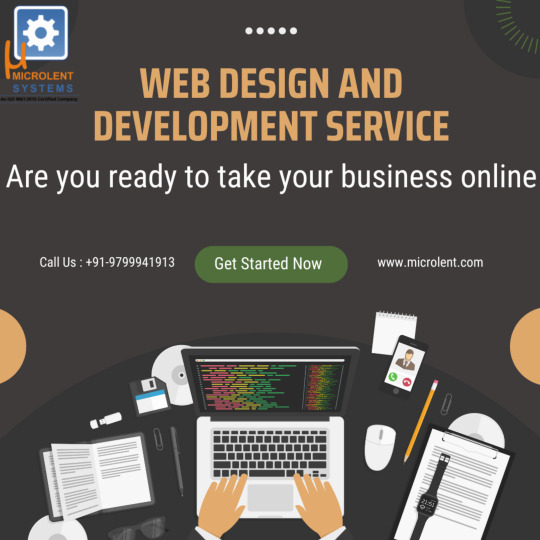
Microlent Systems
In an era dominated by digital transformation, businesses are relentlessly pursuing innovation to stay ahead in their respective markets. Amid this digital race, Microlent Systems emerges as a beacon of technological advancement and a pioneer in web development services. With a robust portfolio that spans web application development, TV application development, wearable technology solutions, enterprise solution development, AI/ML-based solutions, and IoT/hardware integrated solutions, Microlent stands at the forefront of enabling businesses to unlock their full potential in the digital landscape.
Web Application Development: A Cornerstone for Digital Success At the heart of Microlent's services lies its web application development expertise. In understanding the critical role that web applications play in today's business ecosystems, Microlent delivers bespoke solutions that are not just about coding and deployment but about creating a digital experience that resonates with end-users. From e-commerce sites that handle millions of transactions to SaaS platforms that automate business processes, Microlent's approach is to build scalable, secure, and dynamic web applications that drive user engagement and business growth.
Revolutionizing Television with TV Application Development The television industry is undergoing a transformation, with digital platforms and OTT services changing the way content is consumed. Microlent's TV application development service is tailored to meet this new wave of demand. By focusing on user experience, Microlent helps content providers, telecoms, and OTT platforms deliver applications that are intuitive, engaging, and accessible across devices, ensuring content reaches viewers worldwide in the most effective manner possible.
Pioneering in Wearable Technology with Android and Apple Watch Application Development As wearable technologies become an integral part of our daily lives, Microlent is at the helm of developing innovative applications for Android and Apple Watch devices. These applications are not just about extending smartphone functionalities to one's wrist but are designed with a focus on health, fitness, productivity, and lifestyle, ensuring users have a seamless and enriched wearable experience.
Enterprise Solution Development: Catalyzing Business Transformation Microlent recognizes the challenges businesses face in adapting to rapidly changing market conditions. Its enterprise solution development services are focused on building robust, cutting-edge solutions that enable businesses to streamline operations, enhance efficiency, and maintain competitive advantage. Whether it's through CRM systems, ERP solutions, or custom software tailored to specific business needs, Microlent's solutions are a catalyst for digital transformation.
Leading the Way in AI/ML-Based Solutions In the realm of artificial intelligence and machine learning, Microlent is a trailblazer, providing cutting-edge solutions that drive innovation across industries. From predictive analytics and natural language processing to computer vision and intelligent automation, Microlent leverages the latest in AI and ML technologies to help businesses unlock new opportunities, enhance decision-making, and create value in ways never before possible.
Bridging the Physical and Digital with IoT/Hardware Integrated Solutions Microlent's expertise extends into the burgeoning field of IoT and hardware-integrated solutions, where the physical and digital worlds converge. By enabling smart interactions between devices, systems, and services, Microlent's solutions facilitate enhanced data collection, real-time monitoring, and automated control, driving efficiency, sustainability, and innovation across sectors.
Conclusion In the constantly evolving digital landscape, Microlent Systems stands out as a partner of choice for businesses looking to harness the power of technology for growth, innovation, and digital transformation. With a commitment to excellence, a passion for innovation, and a comprehensive suite of web development services, Microlent is dedicated to empowering businesses to achieve their digital aspirations.
#india#software development#mobile app development#mobile app development company in india#web design india#softwaredevelopment#web development
2 notes
·
View notes
Text
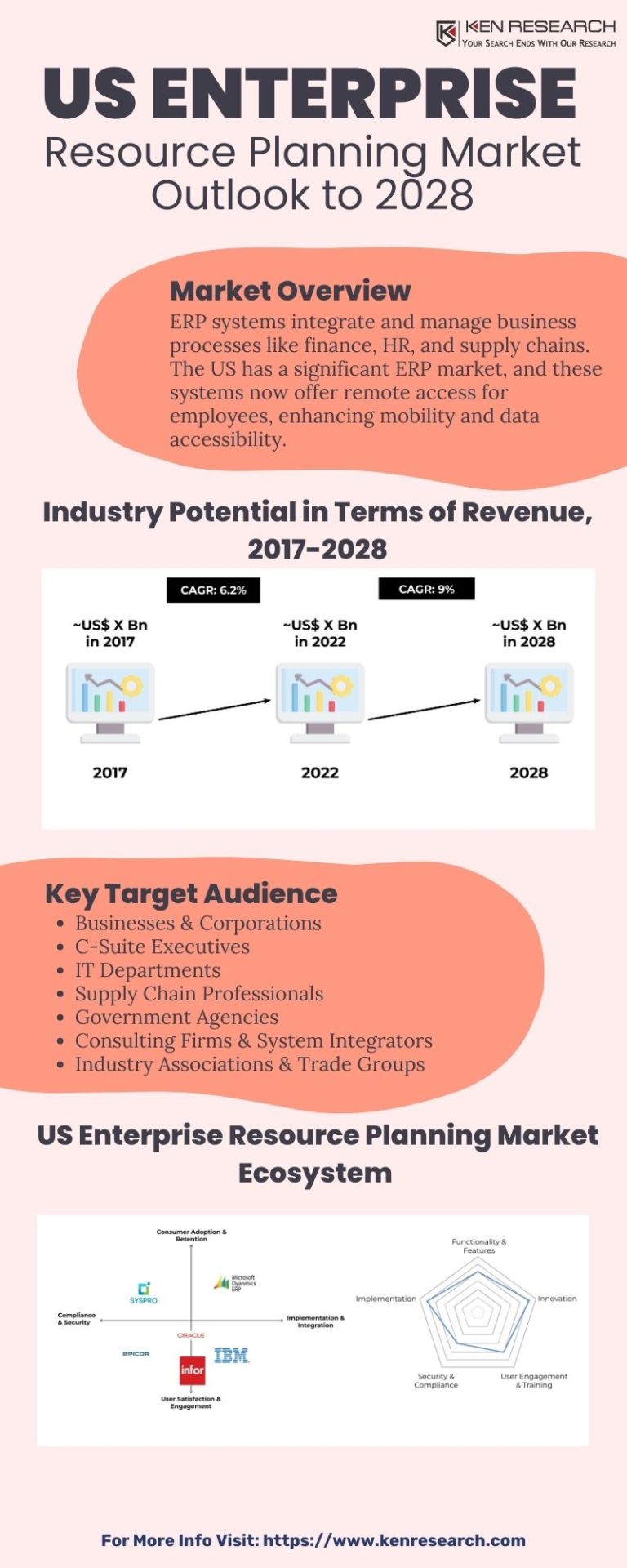
US Enterprise Resource Planning Market Outlook to 2028
ERP systems in the US efficiently oversee finance, HR, and supply chains. They now provide remote access, bolstering mobility and data accessibility for employees.
#ERP Software Trends#US ERP Market Growth#ERP Implementation Strategies#ERP Solutions in the United States#ERP Market Forecast 2028#Cloud ERP Adoption in the US
0 notes
Text
Evolution of Technology and Its Impact on EdTech
In today's digital age, technology continues to evolve at an unprecedented pace, transforming various aspects of our lives, including education. With the advent of EdTech (Educational Technology), traditional educational paradigms are being reshaped, leading to more interactive, accessible, and personalized learning experiences.
Evolution of Technology: A Brief Overview
The evolution of technology has been marked by significant milestones, from the invention of the printing press to the rise of the internet and beyond. Each technological advancement has revolutionized how information is accessed, shared, and utilized, paving the way for transformative changes in education. From chalkboards to interactive whiteboards, from textbooks to digital learning platforms, technology has played a pivotal role in shaping modern education.
Integration of Technology in Education: The Rise of EdTech
As technology continues to advance rapidly, it's crucial for us to stay ahead in the ever-evolving EdTech industry. With this in mind, we've developed an incredibly advanced EdTech software Proctur that offers a comprehensive suite of features tailored to meet the needs of schools, teachers, and parents. We understand the importance of having everyone on the same page, and our platform ensures 100% transparency by bringing schools, teachers, and parents together onto a single unified platform.
Here's a glimpse of the key features our EdTech software offers:
1.User Role Management :Customize user access and ensure data security with ease using our User Role Management feature within our School ERP—empowering efficient administration and peace of mind.

2. Visitor Management : Transform school safety and efficiency with our innovative Visitor Management system! Elevate security while simplifying check-ins for a smarter school experience.

3.Zoom Integration: Facilitate interactive live classes seamlessly with Proctur's ERP Zoom integration feature for enhanced educational engagement.

Bus Tracking System:
We understand the importance of student safety, which is why our software includes a bus tracking system that allows parents to track the whereabouts of their child's school bus in real-time.
At our core, we believe in creating a supportive and inclusive educational ecosystem where every stakeholder – schools, teachers, and parents – plays a vital role in shaping the future of our students.
EdTech Market Size: A Global Perspective:
The global EdTech market has experienced exponential growth in recent years, driven by increasing digitalization, rising demand for online education, and advancements in technology. According to market research reports, the Indian EdTech market size was valued at over $20 billion in 2022, and it is projected to continue its upward trajectory in the coming years.
EdTech Market in India: Trends and Opportunities
In India, the EdTech sector has witnessed remarkable growth fueled by factors such as a large young population, increasing internet penetration, and government initiatives promoting digital education. The market size of EdTech in India is estimated to be around $4.3 billion in 2022, with notable players offering a diverse range of solutions catering to different segments of the education ecosystem.
Conclusion
In conclusion, as technology continues to revolutionize the education sector, Proctur, as showcased on their website proctur.com, exemplifies how advanced EdTech solutions can streamline education management processes and foster transparency between schools, teachers, and parents. Through Proctur's innovative approach to education management, schools can efficiently manage their resources, track student progress, and enhance parent engagement. With Proctur leading the way, the future of education management looks brighter than ever before.
#proctur#edtecherp#edtech#school management software#school management system#classroom management#yourpocketclassroom
2 notes
·
View notes
Text
youtube
At KSoft Technologies, we make your business shine online with a comprehensive suite of services designed to elevate your digital presence. Our expertise spans custom web development, mobile app solutions, and tailored ERP systems, ensuring your business has the tools it needs to thrive. Whether it's creating a stunning website, custom WordPress development, or PHP solutions, we ensure everything fits your unique needs. But we don’t stop there. Our Digital marketing consultation services, including SEO strategies andGoogle Ads management, help drive targeted traffic and maximize ROI, positioning your brand for growth. Additionally, our DevOps services and Business process optimization streamline operations, while our Manual testing and UAT ensure your software performs flawlessly. From building an Ecommerce website to delivering Motion graphics and Content creation, we provide End-to-end solutions that empower your business to Stand out and succeed in the digital world. #ksofttechnologies #businessgrowth #digitalconsulting #ecommercedevelopment #customwordpressdevelopment #erpdevelopment #businessstrategy #customerp #erpsolutions
#ksofttechnologies#businessstrategy#erp development company#erp solutions provider#entrepreneur#ecommerce#economy#artificial intelligence#web design#editorial design#web development#erp software#Youtube
2 notes
·
View notes